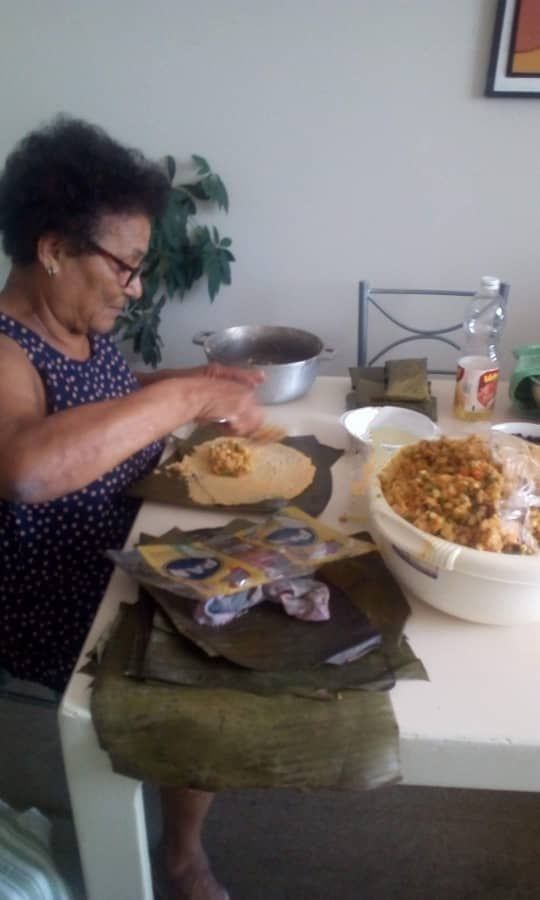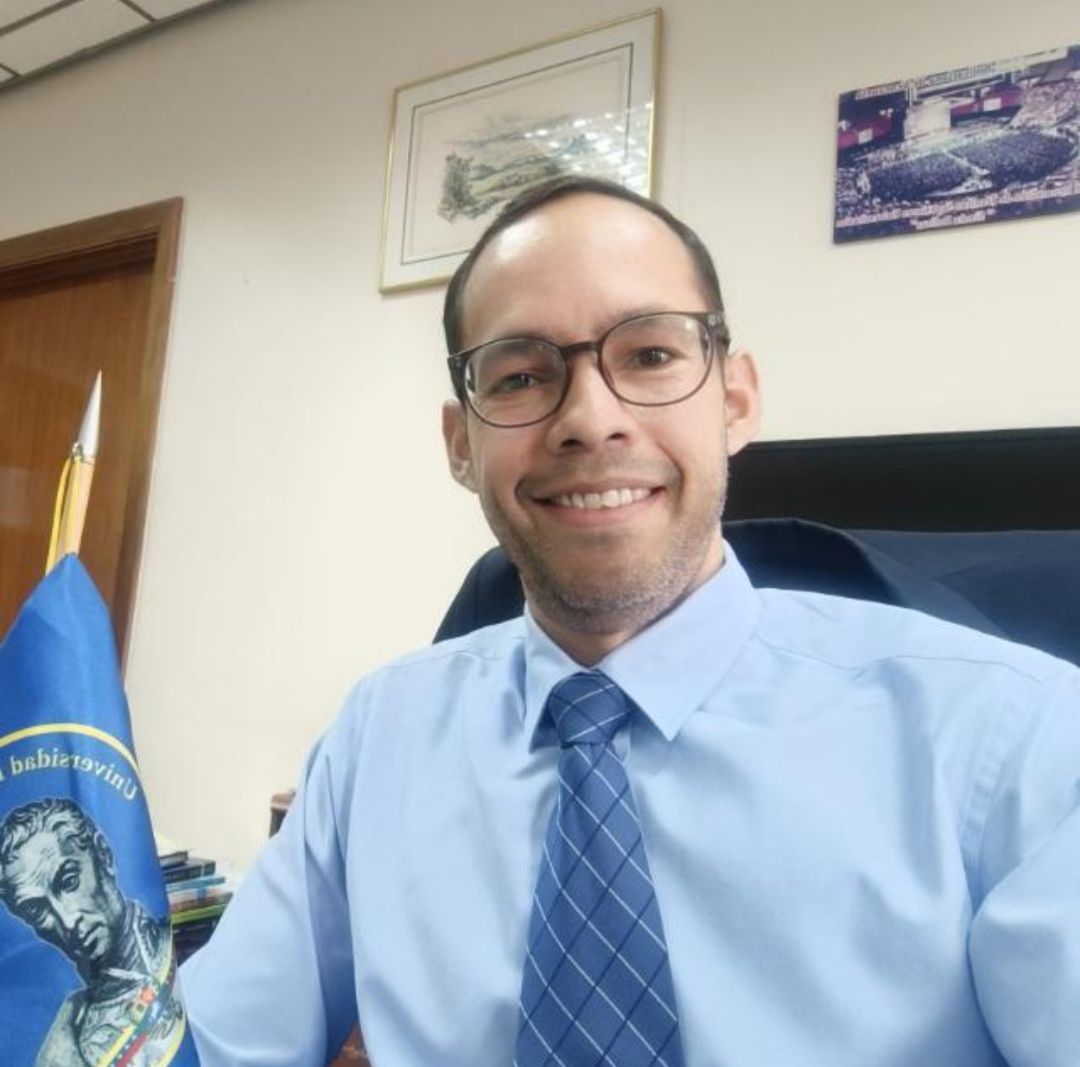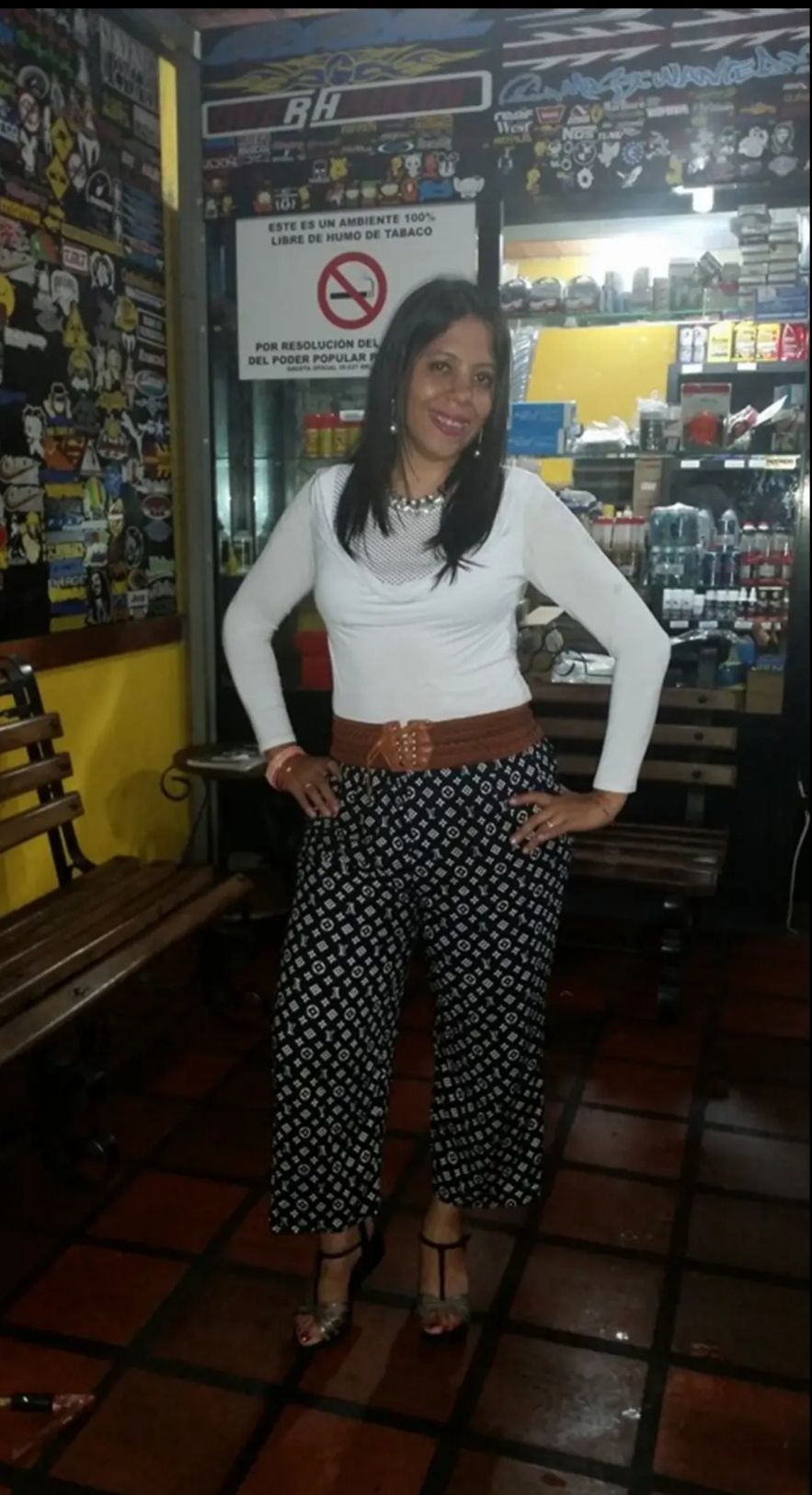A decade from the Mazo! Get to know what your audience thinks... (+testimonials)
With The Dando Mazo
Published at: 09/02/2024 02:00 PM
For 10 years, the Con El Mazo Dando Program has been part of the Venezuelan family due to Captain Diosdado Cabello's way of communicating, which means that people, in their homes, feel comfortable in their armchairs every Wednesday.
We took to the streets to talk to the audience of Con El Mazo Dando to learn their impressions of a decade after the anniversary of the communication space.
“The good mood that is reflected in the program”

Mrs. Denis willingly served us the freshly brewed coffee and with a big smile she began to tell us her anecdotes about El Mazo.
“It's my favorite show, I haven't missed a single Mazo since it started, and if I fall asleep, I wake up in the early morning to watch it,” she laughed.
In this regard, he told us that he really likes the billboard section because it makes opponents look ridiculous with their own posts on social networks, as part of the “good humor that is always reflected in the program, and also leaving the message and teaching of Commander Chávez in every video that is presented”.
Mrs. Denis's assessment of the nickname given to Captain Cabello: Baby Gerber, seemed right to me “because he does look like it (laughs); the one who wanted to offend him didn't count on us starting to see him as a tender baby with character”.
In this regard, he expressed his admiration for Cabello, since in addition to feeling a deep love for him, he described him as “a great leader and he is one of those who loves and follows Commander Hugo Chávez the most in solidarity, who drags Pueblo and holds me with my heart in my hand wherever he wants,” he said.
“In my house there is a joke that Wednesdays are untouchable”
We toured a shopping mall in Valencia and were struck by an 18-year-old girl who was sitting at the fair level working with her laptop. Out of curiosity, we asked her if she watched the program and she gladly answered in a positive way.

Coincidentally, Camila Duque is part of the Agitation, Propaganda and Communication Team (APC) of the United Socialist Party of Venezuela (PSUV) and Youth Party (JPSUV) in the municipality of San Joaquín, and she also works on social networks.
“We've watched the show since it came out in 2014, I don't think we've ever missed one. What's more, in my house there's a joke that Wednesdays are untouchable (laughs) and if we're out on the street due to bad luck my mom, dad or I play it on the phone but we always watch the show (laughs),” said Camila as she told us on her laptop the large number of followers that the Mazo account has on social networks and that through this way many of her age find that communication space and interact on every label that is positioned on Wednesdays.
In addition, he expressed his favouritism because of Diosdado Cabello's analysis of the billboard and also said: “I have learned from the program that he shows us that in the Fourth Republic it was not rosy as the opposition currently wants to paint it, at that time human rights were not respected.”
In the same way, he said that the revolutionary space reminds us that Chávez was a visionary leader who was always in favor of youth, who, like a father, guides and guides, today, so as not to fall into the lies of the right. “Commander Chávez warned us, long before I was born, to take action to keep doing things right for the country.”
The young revolutionary said goodbye with a message to the El Mazo Team and especially to the host of the television space, Diosdado Cabello: “Keep doing the program, because we are always going to need him and doing the Mazo for 100 more years (laughs), which is a reference for young people and that he will continue to be that stone in the shoe for the Venezuelan opposition,” he said.
“The Deck is zero bitterness”
During an event with the youth, we ran into this academic who, when we asked him about the Mazo, immediately said: “Of course, I see it!”

Álex, with his eagle eye through his lenses, took some time to comment: “The Mazo is for us an obligatory reference for political analysis, which provides us with an understanding of the trend and the political situation, and which outlines the line of action of the revolutionary forces”.
He said that he never tires of seeing Commander Chávez's section because for him it represents a path to follow in this fight for truth and justice.
“The program preserves their legacy and promotes their development. Go ahead and contribute to the formation of the conscience of the People and make sure that El Mazo returns to the regions soon!” , said Díaz Padrón.
The professor also emphasized the humor of the program, which is a great attraction during four hours of broadcasting each week.
“Another thing I like about the show is how Mr. Cabello... It is the humor with which the political is narrated, zero bitterness”, while congratulating him for these first 10 years that he has done in the production of space.
“It's the defensive window of the Bolivarian Revolution”

We met a smiling man when we took a tour of the state of Aragua, Yeivic Jiménez, an analyst of top sports studies, who “proclaimed himself” to be the number one fan of the Mazo.
“The program is good from start to finish, I find out what's going on politically when I'm here in Venezuela and out of the country,” he laughed and defined it as “the current defensive window of the Revolution.”
He jokingly asked us: “Who doesn't laugh at the Mazo?” , explaining that it “reflects the deficiencies experienced by the Venezuelan opposition” in a truthful way and that it leaves a clear message that this sector of the opposition causes the mockery of all Venezuelans.
He highlighted the analysis of the billboard, which shows direct and indirect attacks by the national and international opposition.
Jiménez highlighted that the Mazo has also highlighted the achievements of Venezuelan athletes as part of that legacy left by Commander Hugo Chávez.
“The message I can give to Diosdado is to take good care of himself in order to enjoy his participation in the program more. The Bolivarian Revolution plays a fundamental role in youth and sports development. We wish Mazo congratulations and many years,” he emphasized.
“I love it when Diosdado says: 'Oh my chair!”

Anyi Delgado treated us very kindly at her place of work, in a car wash in Miranda state where we changed the oil in the car; we told her: “No tricks or tricks...” and she, in complicity, replied: “The Mazo does not deceive”.
This 41-year-old woman told us that she entertains and laughs a lot with the opposition fighting section and especially with María Corina Machado's tantrums because she is disabled.
“Those are non-stop laughs! Diosdado when it starts to be ironic like La Llorona... 'Oh my chair! I can imagine María Corina's face glued to the television with her bitter face,” she said.
In addition, he added that the program reminds him, based on this opposition, that he has done harm to the country and that now with his “face of I was not” he wants the acceptance of the people.
“I think it's excellent that Diosdado reminds him all the time, especially to the disabled, 'you're not going, 'because they've been macabre people, they've called for invasion and evil for Venezuela,” he concluded.
With El Mazo Dando, it has enormous popular acceptance, and the testimonies and affection they have for Captain Diosdado Cabello, who has earned that love, are endless. Because of this sentiment to his people, he stands firm in bringing the truth of the Bolivarian Revolution with an anti-imperialist character.
Mazo News Team